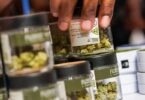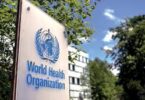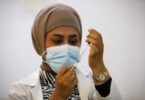Michael Rosen
United States Trade Representative (USTR) Katherine Tai shocked the world last May by announcing the US would not oppose a petition at the World Trade Organization (WTO) to waive patent rights for COVID-19 vaccines. Some expected the European Union and other developed countries to follow suit, allowing generic drug manufacturers to produce cheap and effective doses that could swiftly be put in arms worldwide, especially in the Global South.
Others of us expressed skepticism at the waiver’s substance and prospects of successful enactment by a WTO laden with competing interests and a sluggish, bureaucratic process of achieving consensus. Sure enough, no agreement emerged despite numerous meetings of WTO subcommittees responsible for the so-called Trade-Related Aspects of Intellectual Property Rights (TRIPS).
Last month, there appeared to be a breakthrough when South Africa and India, the countries that filed the petition in October 2020, along with the US and EU, the latter of which has until now vigorously opposed it, seemingly reached a compromise that would allow certain countries to manufacture vaccine doses — developed at a cost of tens of billions of dollars by pharmaceutical pioneers. The quartet reportedly agreed to relax patent protection on COVID-19 vaccines (although not on treatments or diagnostics) for most countries, not including China.
The agreement, whose text has not officially been published but has leaked, authorizes member countries to issue any and all “executive orders, emergency decrees, government use authorizations, and judicial or administrative orders” to authorize the manufacture and use of vaccines protected by patents “without the right holder’s consent.” What isn’t entirely clear is whether countries invoking the waiver would nevertheless have to provide reasonable compensation to the patent holder in exchange for a compulsory license, as the EU had previously insisted. The United Kingdom and Switzerland, which are not EU members but have prominent domestic pharmaceutical industries, did not form part of the consensus, nor did other developed countries that have opposed the waiver.
The compromise earned plaudits from the WTO. “This is a major step forward and this compromise is the result of many long and difficult hours of negotiations,” Director-General Ngozi Okonjo-Iweala said, “But we are not there yet. We have more work to do to ensure that we have the support of the entire WTO Membership. . . . In the WTO we decide by consensus, and this has not yet been achieved.”
Not everyone was pleased. The Biotechnology Industry Association decried the proposal, arguing that “dismantling the foundation of innovation — a strong and predictable IP system — will only make us less prepared to respond to the next pandemic and weaken our ability to develop new classes of medicines the world needs.” Several US senators lamented what they called a “disastrous plan” that “would destroy high-paying American jobs while handicapping our nation’s ability to develop life-saving medicines in the future.” Sens. Thom Tillis (R-NC), Tom Cotton (R-AR), and Marsha Blackburn (R-TN) contended that “strong intellectual property rights are the bedrock that supports the investment and innovation that has historically allowed the US to lead the world” and that “an intellectual property waiver would be a senseless gift to our foreign adversaries.” Meanwhile, appearing before the House Ways and Means Committee earlier this week, Tai presented a much vaguer position:
One of the top issues we are working towards is an outcome on intellectual property as part of the administration’s broader efforts to end the pandemic. This has been a long and difficult process — and it is never easy to reach a consensus across the 164 members of the WTO. While no agreement on text has been reached, we will continue to engage with Members to get as many safe and effective vaccines to as many people as fast as possible. (emphasis added).
Note Tai’s use of the term “outcome on intellectual property” instead of “TRIPS waiver,” her acknowledgment of the difficulties the WTO has encountered in trying to reach agreement, and the ultimate concern with getting safe and effective shots into arms efficiently.
Ultimately, as discussed here and elsewhere, waiving patent rights isn’t likely to help get shots into arms given supply-chain and other logistical shortcomings afflicting the developing world. Indeed, the pharmaceutical industry reports manufacturing nearly 12 billion vaccine doses since the onset of the pandemic, providing almost five billion people with at least one shot, and expects to produce another 20 billion doses this year. Meanwhile, South Africa had to discard nearly 100,000 expired doses while Kenya cashiered 840,000 doses last month and may have to trash another million this month.
“If you want to scale up manufacturing,” Thomas Cueni, director-general of the International Federation of Pharmaceutical Manufacturers and Associations, asserted, “You need know-how sharing, trained technicians, supply chains of hundreds of ingredients and components and none of that information can be found in the patents.” Amen to that.
Courtesy: (AEI.org)






